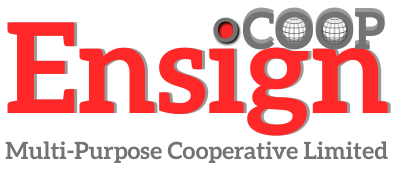
A COMMUNITY-OWNED COOPERATIVE WILL SUCCEED FAR BETTER THAN THE OPERATIONS OF CHARITIES IN ADDRESSING AFRICA’S POVERTY CHALLENGES: HERE’S WHY!
- Ownership and Stakeholder Buy-In: A cooperative is owned by the members of the community it serves, giving them a direct stake in its success. This ownership fosters a sense of responsibility, commitment, and pride, which drives higher levels of participation and effort. In contrast, charities are often managed by external entities, which can lead to a disconnect between the organization’s goals and the community’s needs.
- Self-Sufficiency: Cooperatives focus on building the skills, resources, and infrastructure needed for long-term self-sufficiency. By investing in local businesses and industries, cooperatives empower communities to generate their income and reduce dependency on external aid. Charities, on the other hand, often provide temporary relief without addressing the root causes of poverty, leading to ongoing dependency.
- Democratic Decision-Making: In a cooperative, decisions are made democratically by the members, ensuring that the projects and initiatives undertaken reflect the actual needs and priorities of the community. This contrasts with charities, where decision-making is often centralized and may not always align with the specific needs or desires of the communities they serve.
- Building Local Capacity: Cooperatives emphasize capacity building, equipping community members with the skills and knowledge needed to manage and grow their businesses. This leads to the development of local expertise and leadership, which is essential for sustainable development. Charities may provide training, but it is often limited and not integrated into a broader strategy for local empowerment.
- Economic Multiplier Effect: Cooperatives reinvest profits back into the community, creating a multiplier effect that stimulates local economies. By supporting local businesses, cooperatives create jobs, increase income levels, and boost overall economic activity. Charities typically do not have this multiplier effect, as much of their funding is spent on non-local goods and services.
- Adaptability to Local Conditions: Because cooperatives are rooted in the local community, they are highly adaptable to the specific cultural, social, and economic conditions of the area. This allows them to develop tailored solutions that are more effective and sustainable. Charities often apply a one-size-fits-all approach that may not be suitable for all communities.
- Accountability and Transparency: Since cooperatives are owned and operated by community members, there is a high level of accountability and transparency in their operations. Members have a vested interest in ensuring that funds are used effectively and that the cooperative is successful. Charities, especially large international ones, can sometimes lack this level of accountability, making it difficult to ensure that resources are used efficiently.
- Encouraging Entrepreneurship: Cooperatives encourage entrepreneurship by providing members with the tools, resources, and support needed to start and grow their businesses. This fosters a culture of innovation and self-reliance within the community. Charities, in contrast, may focus more on providing aid than on encouraging entrepreneurial activity.
- Social Capital Development: Cooperatives help to build social capital by fostering collaboration, trust, and mutual support among community members. This strengthens the social fabric of the community and enhances its resilience to external shocks. Charities, while providing valuable services, may not always have the same impact on social capital development.
- Sustainable Impact: The cooperative model is inherently designed for sustainability. By focusing on local ownership, economic empowerment, and long-term growth, cooperatives create a lasting impact that endures beyond the initial investment. Charities, while often well-intentioned, may struggle to achieve the same level of sustainability, particularly when their funding is uncertain or short-term.
Empowering individuals and communities through the cooperative model is the ultimate solution to Africa’s poverty challenge. This approach not only addresses the immediate needs of the community but also builds the foundation for long-term prosperity, making it a far more effective and sustainable alternative to traditional charity handout models.
We at Ensign hope that the focus of Donor Agency’s grants, donations, and Funding for humanitarian projects will now shift from charities and nonprofits to community-based cooperatives to deliver the desired outcomes.

